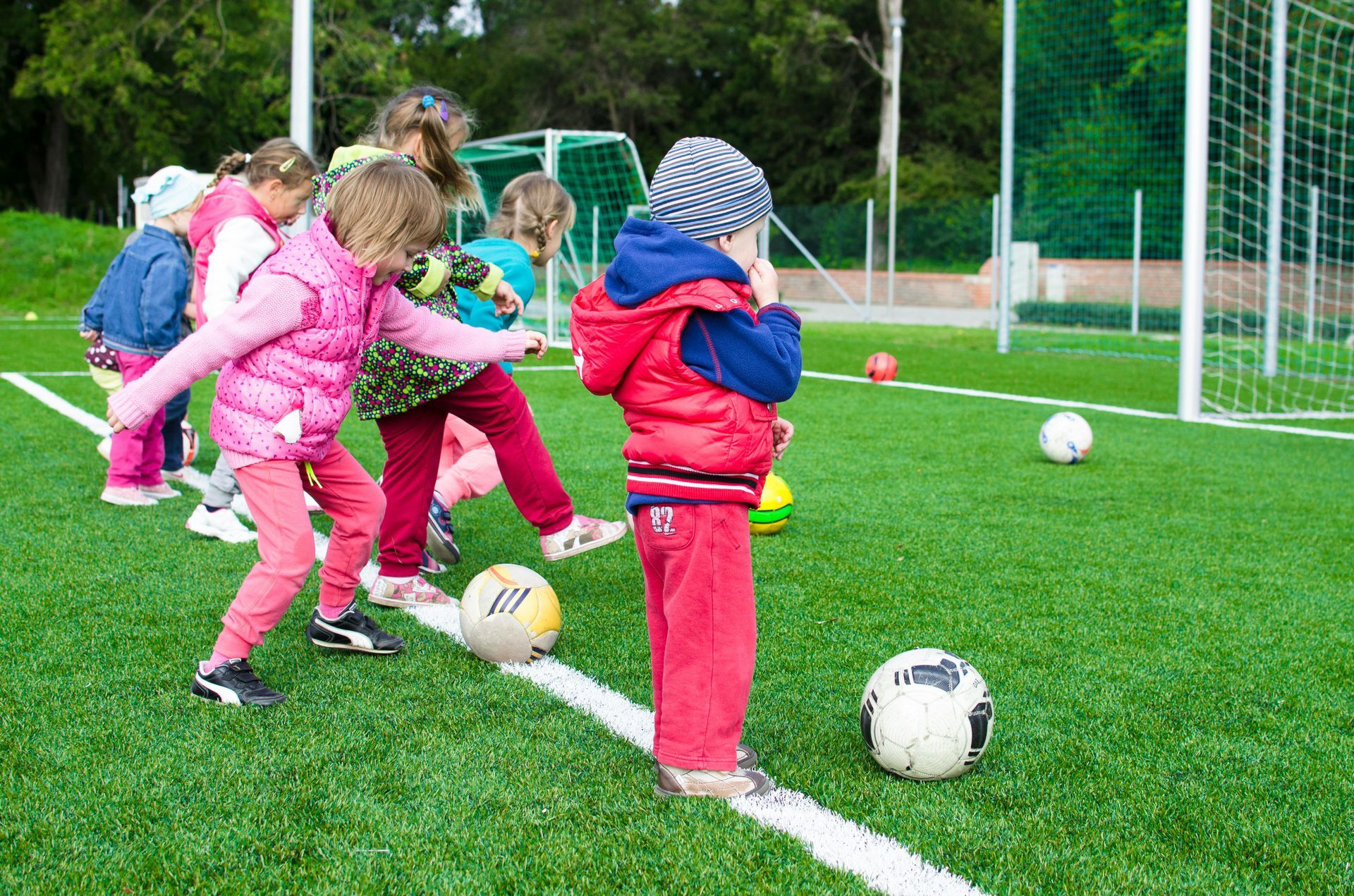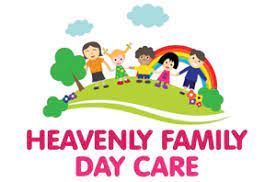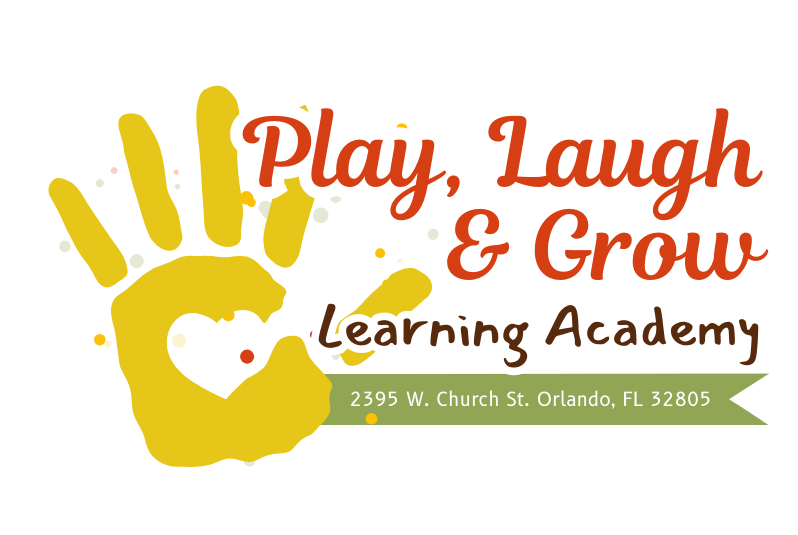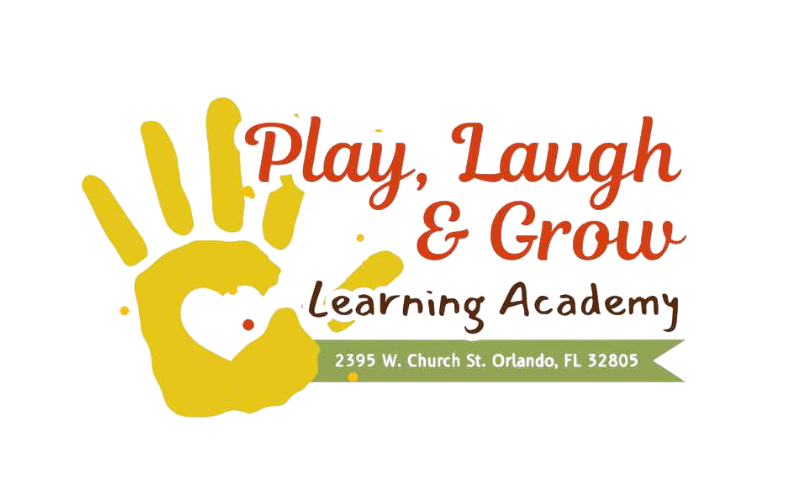Is Daycare All Year Round? Here’s What You Should Know
February 18, 2025

If you're a parent juggling work, errands, and trying to keep a toddler from eating crayons, you’ve probably asked yourself: Is daycare all year round?
The short answer? It depends on the daycare.
Some childcare centers operate year-round, giving parents that much-needed consistency. Others follow a school-year schedule, meaning they close for summer and major holidays. If you don’t plan ahead, you might find yourself scrambling for backup childcare.
So let’s break it down—because knowing what to expect can save you a serious headache later.
Year-Round Daycare: The Best Childcare Option For Working Parents
Many full-time childcare centers and preschools provide care 12 months a year with only brief closures for holidays. This means:
If your job doesn’t come with summer vacation (which, let’s be real, most don’t), year-round daycare is a must. It ensures you’re not left scrambling for alternative care when school-based programs shut down.
- Consistent care for your child
- No gaps in routine or learning
- Peace of mind for working parents
If your job doesn’t come with summer vacation (which, let’s be real, most don’t), year-round daycare is a must. It ensures you’re not left scrambling for alternative care when school-based programs shut down.
Seasonal Programs: Be Prepared For Gaps
Some daycares—especially those connected to schools—may close for summer, spring break, or winter holidays. Others might shorten their hours during certain times of the year.
This can be a challenge if:
Before enrolling, always check if the daycare follows a traditional school calendar or operates year-round.
This can be a challenge if:
- You work full-time and can’t take off for summer break
- You don’t have a backup plan for child care gaps
- Your child thrives on routine and doesn’t do well with sudden schedule changes
Before enrolling, always check if the daycare follows a traditional school calendar or operates year-round.
Pro Tip: Ask about holiday closures, summer schedules, and sick day policies before you enroll .
Final Thoughts
Year-round daycare is a game-changer for busy parents, but not all centers offer it. If you need full-time, uninterrupted care in Orlando, our educational childcare offers it for parents who want the best care for their children.
Because let’s face it—parenting is hard enough without scrambling for last-minute childcare.
Want to learn more about our programs? Click the button below to learn about our year-round childcare.

Socialization is an essential part of early childhood development, and at Play Laugh and Grow Academy, we understand the importance of helping children build healthy, positive relationships from a young age. The early years are when children begin to develop social skills that will last a lifetime, and fostering these skills early on can significantly impact their future interactions with peers, adults, and the world around them. In this blog post, we will explore the many benefits of early socialization and how parents can support their child’s development of social skills. 1. Enhancing Communication Skills Effective communication is the foundation of healthy relationships. By encouraging early socialization, children learn how to express themselves clearly, understand others, and engage in meaningful conversations. The sooner children are exposed to social interactions, the more comfortable they become in using language to connect with others. Here are some ways socialization promotes communication skills: Listening and responding : In social settings, children practice listening to others and responding appropriately. Whether it's during playtime or group activities, children learn to understand verbal and non-verbal cues, improving their ability to communicate. Expanding vocabulary : Through interaction with peers and adults, children are exposed to new words and phrases. This helps them expand their vocabulary and develop a more diverse range of communication tools. Developing storytelling abilities : Early social interactions often involve sharing stories or experiences. These moments allow children to practice structuring their thoughts, organizing information, and conveying it to others effectively. By socializing early on, children develop strong communication skills that will serve them well throughout their lives. 2. Teaching Empathy and Compassion One of the most valuable social skills children can learn is empathy—the ability to understand and share the feelings of others. Socialization provides opportunities for children to practice empathy by interacting with peers who may have different perspectives, emotions, and experiences. Here are some ways socialization promotes empathy: Learning to understand emotions : Through social interactions, children observe how others react to different situations. They begin to identify and understand emotions such as happiness, sadness, frustration, and excitement. Role-playing and perspective-taking : Playtime often involves role-playing scenarios where children take on different roles. This allows them to step into the shoes of others, helping them understand how others might feel in specific situations. Building compassion : As children socialize and interact with others, they learn how to care for and comfort their peers. This teaches them the importance of kindness and the value of supporting others in times of need. Developing empathy at an early age can set the stage for healthy, compassionate relationships throughout a child’s life. 3. Building Confidence and Self-Esteem Socializing with others helps children build self-confidence by giving them the opportunity to interact with people outside of their family. When children learn to navigate social situations and form friendships, they gain a sense of accomplishment and self-worth. Here’s how early socialization builds confidence: Positive reinforcement : Interactions with peers and adults provide opportunities for children to receive praise and recognition for their efforts, boosting their self-esteem. Developing problem-solving skills : Socializing involves navigating challenges such as conflict resolution, sharing, and cooperation. Successfully overcoming these challenges helps children feel more capable and confident. Exploring new environments : Whether it’s joining a group activity, attending school, or participating in playdates, socialization exposes children to new experiences. These new environments help children build adaptability and resilience, further boosting their confidence. When children feel confident in social settings, they are more likely to engage in future interactions and take on new challenges. 4. Improving Emotional Regulation Early socialization helps children learn how to regulate their emotions in various social situations. Socializing with peers teaches children how to manage their feelings, whether it’s frustration from losing a game or excitement from a new friend. Here’s how socialization supports emotional regulation: Managing frustration : When children engage in group play or activities, they often experience moments of disappointment or frustration. These situations give children opportunities to practice managing their emotions and finding constructive ways to cope. Learning self-control : Through interactions with others, children learn how to control impulses, wait their turn, and practice patience. This emotional self-regulation is crucial in building positive relationships and avoiding conflicts. Building resilience : Socialization helps children develop resilience by teaching them how to handle setbacks and challenges in a positive way. By learning to cope with emotions, children become more emotionally intelligent and better equipped to handle difficult situations. Early socialization is key to developing emotional regulation skills that support healthy relationships and personal growth. 5. Enhancing Cooperative Skills Cooperation is a critical skill for success in school, work, and social settings. Socializing with peers at a young age helps children learn how to cooperate, share, and work together toward a common goal. Here are ways socialization enhances cooperation: Teamwork and collaboration : Group activities such as games, arts and crafts, or building projects teach children the importance of working together and sharing resources. These activities encourage cooperation and help children learn how to collaborate effectively. Negotiating and compromising : Through play and social interaction, children learn the importance of negotiating and compromising when disagreements arise. These skills are essential for conflict resolution and maintaining positive relationships. Building trust : When children cooperate with others, they learn the value of trust. They develop a sense of security and mutual respect that forms the foundation of lasting friendships. Learning to cooperate with others at an early age helps children build strong social networks and sets them up for success in future collaborative environments. 6. Strengthening Peer Relationships One of the most significant benefits of early socialization is the development of strong peer relationships. Friendships formed during childhood are crucial for emotional support, social development, and overall well-being. Here’s how socialization strengthens peer relationships: Building lasting friendships : Regular social interactions allow children to form meaningful connections with others. These friendships provide a sense of belonging and help children navigate their social world. Developing social bonds : Early socialization helps children learn how to maintain and strengthen friendships over time. Through shared experiences and positive interactions, children build bonds with their peers that can last a lifetime. Providing social support : Peer relationships offer emotional and social support, helping children cope with challenges and learn how to navigate social dynamics. Strong peer relationships are essential for building a child’s social network and providing a source of support throughout life. Discover how to foster a supportive learning environment at home for your child and encourage creativity through imagination and artistic expression by exploring How to Create a Supportive Learning Environment for Your Child at Home and Encouraging Creativity in Early Childhood: The Role of Imagination and Artistic Expression . Conclusion Early socialization plays a pivotal role in shaping a child’s social, emotional, and cognitive development. By fostering communication skills, empathy, confidence, emotional regulation, cooperation, and peer relationships, children are better equipped to navigate the complexities of the social world. At Play Laugh and Grow Academy, we believe in the power of early socialization to help children develop healthy relationships that will serve them well throughout their lives. By providing children with ample opportunities for socialization, parents can help lay the foundation for a lifetime of positive, meaningful connections.

At Play Laugh and Grow Academy, we believe that learning should not be confined to the classroom. Parents and caregivers play a crucial role in supporting their child's educational journey, and creating a supportive learning environment at home can have a significant impact on a child's development. This blog post will explore practical strategies for parents to create an environment that encourages curiosity, fosters learning, and nurtures the growth of their child at home. 1. Organize the Space for Learning A well-organized, dedicated learning space is essential for creating an environment that supports your child’s learning. While you don’t need a separate room for this purpose, you can designate a quiet, distraction-free area where your child can focus on activities like reading, drawing, or completing educational tasks. To create an effective learning space: Choose a quiet area : Select a space away from distractions such as TV or loud noises. Ensure comfort : Make sure the space has appropriate furniture, such as a comfortable chair or desk, that suits your child’s needs. Organize materials : Keep learning materials like books, paper, crayons, and educational toys neatly organized and easily accessible. Having a specific area dedicated to learning helps your child understand that this space is for growth, focus, and creativity, setting the tone for productive activities. 2. Encourage a Growth Mindset One of the most important things parents can do to support their child’s learning at home is to encourage a growth mindset. A growth mindset is the belief that abilities and intelligence can be developed with effort, learning, and persistence. Children with this mindset are more likely to embrace challenges, learn from mistakes, and keep working toward their goals. Here are ways to nurture a growth mindset: Praise effort, not just achievement : Instead of solely celebrating successes, focus on praising the effort your child puts into their tasks. For example, say “I’m proud of how hard you worked on that puzzle” rather than just “Great job finishing it.” Normalize mistakes : Let your child know that making mistakes is a natural part of learning. Encourage them to try again, learn from their errors, and keep going. Use positive language : Avoid phrases like “You’re just not good at this,” and instead use growth-oriented language like “Let’s keep practicing, and you’ll get better.” When children are taught that learning is a continuous process, they become more confident in their ability to tackle new challenges. 3. Make Learning Fun with Games Learning doesn’t always have to be serious. Children learn best when they are engaged, and games provide an excellent opportunity to make learning enjoyable. Whether you’re playing a board game, solving puzzles, or engaging in educational activities, the key is to keep things fun and interactive. Here are some ideas for making learning fun at home: Board games : Classic games like “Chutes and Ladders,” “Memory,” and “Candy Land” help develop math skills, memory, and strategic thinking. DIY crafts : Use simple materials to create arts and crafts that also serve as learning opportunities. For example, you can make a collage using shapes to teach geometry or create a nature journal to explore science concepts. Interactive apps and online games : In moderation, educational apps can provide opportunities for children to learn new skills. Look for games that encourage problem-solving, critical thinking, and creativity. By incorporating fun into learning, children are more likely to stay engaged, excited, and motivated to continue exploring new concepts. 4. Incorporate Learning into Daily Routines You don’t have to reserve special time for learning activities. Everyday routines can also be learning opportunities. Children absorb information from their environment all the time, and as a parent, you can use this to your advantage by incorporating educational moments into daily tasks. Here’s how to integrate learning into daily routines: Cooking together : Use cooking as an opportunity to teach math concepts (measuring ingredients, counting items) and science (how heat changes food). Grocery shopping : While shopping, talk about the names of different foods, their colors, sizes, and nutritional benefits. You can also practice counting and categorizing. Outdoor exploration : When going for a walk, discuss nature, animals, and plants. You can also collect leaves, flowers, or rocks to study and classify. By weaving learning into your child’s daily activities, you make education feel natural and relevant to their world. 5. Encourage Reading and Storytelling Reading is one of the most powerful tools for early childhood development. At Play Laugh and Grow Academy, we emphasize the importance of reading to young children, and parents can play a significant role in fostering a love for books at home. Reading not only enhances literacy skills but also stimulates imagination and creativity. To encourage reading: Read aloud regularly : Set aside time each day to read to your child, and let them choose their favorite books. Encourage them to ask questions and make predictions about the story. Create a cozy reading nook : Dedicate a small space in your home with pillows, blankets, and a selection of books where your child can enjoy reading on their own. Storytelling activities : Encourage your child to create their own stories, either verbally or through drawing. This boosts their language skills and encourages creative thinking. A child who grows up surrounded by books and storytelling is more likely to develop strong literacy skills and a lifelong love for reading. 6. Set Goals and Celebrate Achievements Setting achievable goals is a great way to help your child stay focused and motivated. Whether it’s completing a specific task, learning a new skill, or working on a project, goals provide children with a sense of purpose and direction. Here’s how to set goals effectively: Set small, achievable goals : Break tasks down into smaller steps. For example, instead of “finish the entire puzzle,” try “find all the corner pieces.” Celebrate progress : Acknowledge your child’s progress, no matter how small. This can be as simple as saying “Great job on putting that puzzle together” or rewarding your child with a special activity once they’ve reached their goal. Celebrating achievements, no matter how small, helps build a child’s confidence and reinforces the idea that learning is something to be proud of. Learn about the importance of encouraging creativity through imagination and artistic expression in early childhood, and how play-based learning can unlock a child's potential by reading Encouraging Creativity in Early Childhood: The Role of Imagination and Artistic Expression and Unlocking the Power of Play-Based Learning for Early Childhood Development . Conclusion Creating a supportive learning environment at home is crucial for your child’s development. Whether you’re organizing a learning space, encouraging a growth mindset, or incorporating fun learning activities into your daily routine, every small action you take can help foster a love for learning. At Play Laugh and Grow Academy, we believe that parents play a central role in nurturing children’s curiosity, creativity, and intellectual growth. By implementing these strategies, you’ll be providing your child with a solid foundation for success in school and in life.

As children develop, one of the most important skills they cultivate is creativity. Early childhood education provides an ideal setting for fostering this essential ability, which helps children solve problems, think critically, and express themselves. At Play Laugh and Grow Academy, we believe that creative activities—whether through drawing, building, or imaginative play—play a pivotal role in helping children develop a wide range of skills. In this post, we will explore how encouraging creativity in early childhood education can contribute to a child’s cognitive, emotional, and social growth. The Importance of Creativity in Early Childhood Development Creativity is often seen as an inherent trait that some children are born with while others may lack. However, creativity is not something that can only be "taught"—it’s a process of exploration, imagination, and expression. By encouraging creativity in the early years, children are given the opportunity to develop skills that go beyond what is typically taught in academic settings. Creativity enhances problem-solving, boosts self-esteem, and allows children to communicate in new ways. 1. Cognitive Benefits of Creativity One of the most notable advantages of fostering creativity in early childhood is its positive impact on cognitive development. When children engage in creative activities, they stimulate their brains in ways that encourage innovative thinking and problem-solving. Whether they are building a structure with blocks, drawing a picture, or pretending to be a character in a story, children use their imaginations to think outside the box. Creative play helps children practice critical thinking skills. For example, when building with blocks, children must figure out how to make their structures stable and find solutions when their creations don’t work as planned. These problem-solving experiences are invaluable in the development of intellectual skills that children will use in more complex academic tasks later on. Moreover, engaging in artistic expression gives children a deeper understanding of abstract concepts. They may not know the technical aspects of color theory or symmetry, but when they experiment with colors and shapes, they’re exploring spatial relationships and visual thinking—key components of mathematical reasoning. 2. Emotional and Social Development Through Creative Play Creative activities also support emotional and social growth in children. As they express themselves through art, music, and dramatic play, children gain a greater sense of autonomy and self-worth. Expressing emotions through creative outlets allows children to process their feelings in a healthy way, enhancing their emotional intelligence and resilience. In group creative activities, children learn to share ideas, cooperate with others, and communicate their thoughts. Whether they’re collaborating on a mural or acting out a story in a group, these activities encourage teamwork and the development of social skills such as empathy, listening, and respect for others. Through these experiences, children learn how to navigate group dynamics and engage in social problem-solving. 3. The Benefits of Hands-On Learning and Creative Exploration At Play Laugh and Grow Academy, we emphasize the importance of hands-on learning experiences that allow children to explore, experiment, and create. When children engage in hands-on activities like painting, sculpting with clay, or role-playing, they not only build fine motor skills but also develop a sense of ownership and pride in their creations. These activities help children refine their dexterity, improve their hand-eye coordination, and strengthen the muscles in their hands and fingers—all of which are important for future tasks like writing and drawing. Hands-on creative activities also foster a love of learning by encouraging children to make choices, explore different possibilities, and discover what works and what doesn’t. This type of exploration encourages curiosity and self-expression, allowing children to become more confident in their abilities and more willing to take risks. 4. Creative Play in Action at Play Laugh and Grow Academy At Play Laugh and Grow Academy, we incorporate creative activities into our daily curriculum to ensure that every child has the opportunity to explore their creative potential. Our classrooms are designed with an abundance of materials that inspire children to think creatively and express themselves in a variety of ways. Here are a few of the ways we foster creativity at Play Laugh and Grow Academy: Art and Craft Stations: Our art stations are stocked with a variety of supplies such as paints, markers, paper, and clay, allowing children to experiment with different mediums. From finger painting to collage-making, children are encouraged to express themselves freely while developing their artistic skills. Imaginative Play Areas: We believe that imaginative play is a powerful tool for encouraging creativity. Whether it’s pretending to be a doctor in our pretend play corner or creating an entire city with building blocks, imaginative play helps children build storytelling skills, practice empathy, and explore different scenarios from multiple perspectives. Music and Movement Activities: Music is another important avenue for creative expression. Through singing, dancing, and playing instruments, children develop an appreciation for rhythm, sound, and movement. These activities also promote emotional expression and help children connect with their peers in a fun, interactive way. Outdoor Exploration: Nature is a wonderful source of creative inspiration. We encourage outdoor play and exploration, where children can gather natural materials like leaves, rocks, and sticks to create art or engage in imaginative storytelling. This type of hands-on exploration not only boosts creativity but also helps children develop a connection with the natural world. 5. Supporting Individual Creativity While creativity is something that can be fostered in group activities, it is equally important to allow children the space and freedom to explore their own creative interests. At Play Laugh and Grow Academy, we recognize that every child has their unique way of expressing creativity. Some children may be more drawn to drawing and painting, while others may prefer building or storytelling. Our teachers work closely with each child to understand their interests and provide personalized support to nurture their creativity. By offering individualized encouragement and opportunities, we help children develop a sense of confidence in their creative abilities and encourage them to continue exploring their interests. Discover how unlocking the power of play-based learning supports early childhood development and the importance of cultivating emotional intelligence in young children for their future success by reading Unlocking the Power of Play-Based Learning for Early Childhood Development and Cultivating Emotional Intelligence in Young Children: A Crucial Skill for Success . Conclusion Creativity is not just about making art—it’s about encouraging children to think, explore, and express themselves in new and meaningful ways. Through creative play, children develop critical thinking skills, emotional intelligence, and social awareness that will serve them throughout their lives. At Play Laugh and Grow Academy, we are dedicated to creating an environment that fosters creativity, helping children grow into imaginative, confident, and well-rounded individuals. By embracing creativity in early childhood education, we give children the tools they need to thrive in a rapidly changing world.

When it comes to early childhood education, there’s one key ingredient that’s crucial for success: play. Play-based learning is a powerful method for helping young children develop essential cognitive, social, emotional, and physical skills. It provides an opportunity for children to learn by doing, experiment with new ideas, and engage with their peers in meaningful ways. At Play Laugh and Grow Academy, we believe that play is the cornerstone of early education, and in this blog post, we’ll explore why play-based learning is so effective and how it sets the stage for future success. What is Play-Based Learning? Play-based learning is a dynamic approach that involves integrating play into the learning process. In this environment, children are given the freedom to explore, create, and interact with materials and others, allowing them to discover and develop new skills at their own pace. Unlike traditional classroom settings where learning is more structured, play-based learning encourages curiosity and problem-solving, making it a highly engaging and effective method for young children. Play-based learning allows children to build on their existing knowledge by actively exploring the world around them. Whether through imaginative role-playing, creative arts, or hands-on science experiments, play provides children with valuable opportunities to apply and refine their learning in a fun and natural way. Why Play-Based Learning Matters There are numerous benefits to incorporating play into the learning process, and research has shown that it plays a vital role in early childhood development. Here’s why play-based learning matters: 1. Promotes Cognitive Growth Play allows children to develop cognitive skills such as critical thinking, problem-solving, and decision-making. Through activities like building with blocks, solving puzzles, or engaging in pretend play, children are encouraged to think strategically and explore different concepts. For example, a child playing with blocks learns about balance, size, and structure, while also enhancing their understanding of basic math concepts like shapes and spatial relationships. Imaginative play, where children assume different roles and create stories, also encourages abstract thinking and enhances creativity. As children engage in these activities, they begin to build a foundation for more complex learning in areas such as reading, math, and science. 2. Enhances Language and Communication Skills Language development is one of the most important aspects of early childhood, and play-based learning plays a critical role in helping children develop strong communication skills. During play, children interact with others, share ideas, negotiate, and express their thoughts. Whether they’re telling a story, asking questions, or collaborating with peers, they practice using language in different contexts, which builds vocabulary and improves communication. Role-playing and storytelling are excellent opportunities for children to develop language skills. When children engage in pretend play, they expand their vocabulary by learning new words related to different characters, actions, and scenarios. These types of activities also help children understand the structure of language and the importance of effective communication. 3. Supports Emotional and Social Development One of the greatest benefits of play-based learning is its ability to foster social and emotional development. As children play with others, they learn valuable skills such as empathy, cooperation, and conflict resolution. Whether they’re playing a game with peers, working on a group project, or engaging in pretend play, children are constantly learning how to interact with others in positive ways. Through play, children also learn to express and manage their emotions. When things don’t go as planned, they are encouraged to problem-solve and work through their frustrations in a safe and supportive environment. This helps build resilience and emotional intelligence, which are essential for their overall well-being. 4. Encourages Physical Development Physical activity is another key benefit of play-based learning. Children develop both fine and gross motor skills as they engage in various physical activities, from running and jumping to drawing and manipulating small objects. These activities help children build strength, coordination, and balance, which are essential for their physical health and development. For example, climbing on a playground structure helps children develop muscle strength and coordination, while drawing and coloring improve fine motor skills and hand-eye coordination. Physical play also contributes to a child’s overall well-being by promoting healthy habits and providing an outlet for energy. 5. Fosters Creativity and Imagination Creativity is one of the most important skills a child can develop, and play-based learning is a natural way to foster this ability. Through imaginative play, children use their creativity to explore new ideas, create stories, and invent new worlds. Whether they’re pretending to be a superhero, a teacher, or an animal, children can express themselves in limitless ways. Creative play also helps children think critically and solve problems in innovative ways. By experimenting with different scenarios and ideas, children learn to think outside the box and develop flexible thinking. This type of play encourages them to explore new possibilities and experiment with their ideas, which can later translate into skills needed in problem-solving and innovation. The Role of Play Laugh and Grow Academy in Play-Based Learning At Play Laugh and Grow Academy, we believe that play is not only essential but also central to our educational philosophy. Our curriculum is designed to promote play-based learning in every aspect of the child’s day, from structured playtime activities to open-ended play opportunities. Here’s how we incorporate play into our program: 1. Themed Learning Centers We create themed learning centers where children can engage in hands-on play that is both educational and enjoyable. These centers focus on different areas of learning, such as science, math, art, and literacy, allowing children to explore new concepts in a playful and interactive way. For example, a “nature” center might include tools for gardening, nature-based books, and toys related to animals and plants. 2. Interactive Group Play Collaboration and teamwork are essential for social and emotional development, so we provide plenty of opportunities for children to engage in group play. Whether it’s working on a group art project or playing a team-building game, these activities help children practice social skills like cooperation, communication, and empathy. 3. Outdoor Exploration and Physical Play Our outdoor play areas are designed to promote physical activity and exploration. Children have access to a variety of outdoor toys and structures that encourage running, jumping, climbing, and other forms of physical play. This helps children develop both gross and fine motor skills, while also providing a space for them to release energy and enjoy nature. 4. Creative and Pretend Play Pretend play is an important aspect of our curriculum, as it allows children to explore different roles, scenarios, and social interactions. We provide materials such as costumes, props, and storytelling tools that encourage children to use their imagination and creativity. This type of play not only supports language development but also helps children understand the world around them. Learn how cultivating emotional intelligence in young children is crucial for their success and explore the deeper role of play in early childhood development by reading Cultivating Emotional Intelligence in Young Children: A Crucial Skill for Success and The Role of Play in Early Childhood Development: Beyond the Basics . Conclusion Play-based learning is a powerful method for fostering the cognitive, social, emotional, and physical development of young children. At Play Laugh and Grow Academy, we are committed to providing a learning environment where play is not just a break from learning but an essential part of the educational experience. By integrating play into every aspect of our curriculum, we help children build the skills they need to succeed in school and life. Play isn’t just fun—it’s a vital part of early childhood development, and we’re proud to embrace it as the foundation of our teaching philosophy.

Emotional intelligence (EI) is the ability to recognize, understand, and manage one’s emotions, as well as the emotions of others. It is a fundamental skill that influences every aspect of our lives—our relationships, academic success, and personal well-being. In young children, emotional intelligence is still in its early stages of development, but it’s a crucial time to lay the foundation for emotional growth. At Play Laugh and Grow Academy, we understand the significance of emotional intelligence and its profound impact on a child's development. This blog will explore why emotional intelligence is important for young children and how we can foster its growth in a nurturing and supportive environment. What is Emotional Intelligence? Emotional intelligence is composed of several key elements, including self-awareness, self-regulation, empathy, and social skills. For young children, emotional intelligence means being able to express their feelings appropriately, recognize how others feel, and respond to their emotions in a healthy and constructive way. The five components of emotional intelligence include: Self-awareness : The ability to recognize and understand one’s own emotions. Self-regulation : The ability to manage and control emotions, especially in challenging situations. Motivation : The ability to stay focused and energized to achieve goals. Empathy : The ability to understand and share the feelings of others. Social skills : The ability to build positive relationships with others. Each of these components is critical for a child’s development and will help them navigate the complexities of social and emotional life as they grow older. Why Emotional Intelligence Matters for Young Children Developing emotional intelligence at an early age is crucial for a child's success in various aspects of life, including: Building Positive Relationships : Children with high emotional intelligence are better able to interact with their peers and adults. They understand how to communicate effectively, resolve conflicts, and show empathy to others, which leads to stronger, more positive relationships. Improved Academic Success : Research has shown that children with strong emotional intelligence tend to perform better academically. They are able to stay focused, handle stress, and approach challenges with a calm and positive mindset, all of which contribute to greater success in the classroom. Enhanced Mental Health : Children who develop emotional intelligence are more likely to be resilient in the face of adversity. They are better equipped to manage stress, regulate their emotions, and handle difficult situations, all of which contribute to better mental health in the long term. Increased Self-Confidence : Children who are able to understand and manage their emotions are more confident in their abilities. This confidence carries over into all areas of their lives, helping them take on challenges and overcome obstacles. How Play Laugh and Grow Academy Fosters Emotional Intelligence At Play Laugh and Grow Academy, we recognize the importance of emotional intelligence in early childhood development, and we have created a nurturing environment where children can explore and develop these skills. Here’s how we incorporate emotional intelligence into our curriculum: 1. Encouraging Emotional Expression Through Play One of the best ways to help children understand and express their emotions is through play. Play allows children to explore their feelings in a safe and non-judgmental way. Whether through role-playing, storytelling, or dramatic play, children can express different emotions and begin to identify how those emotions make them feel. This helps them develop emotional awareness and begin to identify the feelings of others. For example, when children engage in pretend play, they might act out different scenarios where characters experience various emotions such as happiness, sadness, or frustration. By mimicking real-world situations, children can better understand how to manage those feelings and respond to others with empathy. 2. Guided Conversations About Emotions In addition to play, we engage children in conversations about emotions. We encourage them to talk about how they are feeling, why they may be feeling a certain way, and what they can do to manage those feelings. Our educators use age-appropriate language to help children label their emotions, fostering self-awareness and emotional regulation. By validating their emotions and providing guidance on how to manage them, children learn that it’s okay to have feelings and that there are healthy ways to express them. This helps them develop a strong emotional vocabulary, making it easier for them to communicate their needs and emotions effectively. 3. Teaching Empathy Through Group Activities Empathy is an essential component of emotional intelligence, and one of the best ways to teach children empathy is through group activities. In our classrooms, we encourage teamwork and collaboration, where children are given opportunities to work together, share resources, and help one another. These activities allow children to learn how their actions affect others and how they can show care and concern for their peers. For example, when children work together on a group project, they might have to compromise, share ideas, and support one another. Through these interactions, children learn how to read social cues, be mindful of others’ feelings, and respond with empathy. 4. Modeling Emotional Intelligence At Play Laugh and Grow Academy, we believe that educators play a crucial role in fostering emotional intelligence. Our teachers model emotional intelligence by demonstrating self-awareness, empathy, and effective communication. By observing how adults handle emotions and interact with others, children learn how to manage their own emotions and build positive relationships. When educators model emotional regulation, children learn how to stay calm in challenging situations and approach problems with a positive attitude. We also encourage our teachers to use positive reinforcement to build children’s confidence and emotional well-being. 5. Providing a Safe and Supportive Environment Creating an environment where children feel safe and supported is essential for emotional development. At Play Laugh and Grow Academy, we prioritize emotional safety by maintaining a nurturing and inclusive classroom environment. Children are encouraged to express their feelings without fear of judgment, and we create a space where every child’s emotional needs are met. Our teachers are trained to recognize signs of emotional distress and provide the necessary support. We also teach conflict resolution strategies, so children can learn to navigate disagreements and work through their emotions in a constructive manner. Discover how Play Laugh and Grow Academy enhances social-emotional development in young children and explores the vital role of play in early childhood development by reading How Play Laugh and Grow Academy Supports Social-Emotional Development in Young Children and The Role of Play in Early Childhood Development: Beyond the Basics . Conclusion Emotional intelligence is a crucial skill that will benefit children throughout their lives. At Play Laugh and Grow Academy, we recognize its importance and take intentional steps to foster emotional growth in every child. By encouraging emotional expression through play, engaging in guided conversations about emotions, teaching empathy through group activities, modeling emotional intelligence, and providing a supportive environment, we ensure that our children are well-equipped to navigate the world with confidence and empathy. By building emotional intelligence in young children, we help them develop the skills they need to build positive relationships, succeed in school, and grow into emotionally intelligent adults. It’s an investment in their future that will pay dividends for years to come.

Play is much more than just a fun activity for children. It's an essential part of their development, helping them build cognitive, social, emotional, and physical skills. At Play Laugh and Grow Academy, we understand that early childhood is a time of rapid growth, and play plays a pivotal role in shaping young minds. This blog will explore the different types of play and how they contribute to the well-rounded development of children. The Importance of Play in Child Development From building motor skills to learning social cues, the act of play is critical in a child's developmental journey. Play can be categorized into several types, each supporting specific aspects of development. Here’s a deeper look at how different forms of play influence children's growth: 1. Physical Play: Strengthening the Body and Mind Physical play, such as running, jumping, climbing, and dancing, supports a child's physical development. Through these activities, children develop gross motor skills, which are important for balance, coordination, and strength. As children engage in physical play, they also experience the benefits of being active, which are crucial for their overall health. But the benefits aren’t limited to the physical domain. Physical play also impacts cognitive function. It helps children strengthen their problem-solving abilities, as they explore new challenges and find ways to overcome obstacles, whether climbing a structure or balancing on one foot. These experiences foster perseverance and resilience, key traits for personal growth. 2. Social Play: Building Connections with Others One of the most valuable aspects of play is its ability to teach children about social dynamics. When children engage in social play, whether it's cooperative play with peers or playing in groups, they develop vital social skills like sharing, communication, and conflict resolution. These early experiences form the foundation for healthy relationships as children grow older. Through social play, children also learn how to manage their emotions. They encounter situations where they need to take turns, listen, and share ideas with others. In group play, children may need to navigate differences in opinion, which teaches empathy and negotiation skills. 3. Imaginative Play: Developing Creativity and Problem-Solving Skills Imaginative play is a form of play where children engage in pretend scenarios, such as pretending to be doctors, teachers, or superheroes. This form of play is essential for fostering creativity and imagination. Children are able to experiment with different roles, which allows them to explore different perspectives and practice problem-solving. Imaginative play also encourages language development as children invent stories, create dialogues, and develop new ideas. It fosters creativity in the brain, encouraging children to think beyond the present and consider possibilities they may not have encountered otherwise. 4. Constructive Play: Building Cognitive and Problem-Solving Skills Constructive play involves activities that allow children to build or create things, such as using blocks, puzzles, or other building materials. This type of play supports cognitive development by enhancing spatial reasoning, planning, and problem-solving skills. As children experiment with how things fit together or how to solve a puzzle, they build critical thinking skills that will serve them well in school and later in life. Additionally, constructive play offers opportunities for children to develop fine motor skills, such as hand-eye coordination, precision, and dexterity, as they manipulate small pieces to build larger structures. The Benefits of Play in Early Childhood The benefits of play extend far beyond just keeping children entertained. It is through play that children learn the foundational skills they need to succeed later in life. These include: Emotional Regulation : Play helps children learn how to express and control their emotions, which is crucial for their emotional development. Cognitive Development : Through play, children develop cognitive skills such as memory, attention, and problem-solving. These skills are crucial for success in school and beyond. Social Competence : By interacting with other children during play, children develop important social skills such as empathy, cooperation, and respect for others. Creativity and Imagination : Imaginative play allows children to develop their creative thinking and problem-solving abilities. Creating a Balanced Play Environment at Play Laugh and Grow Academy At Play Laugh and Grow Academy, we prioritize the importance of play in every aspect of our curriculum. We create a balanced environment where physical, social, imaginative, and constructive play opportunities are woven into daily activities. Our educators understand that children need both structured and unstructured playtime to fully benefit from these experiences. We encourage outdoor play, creative arts, group activities, and independent play. Our goal is to foster a learning environment where children can explore, express themselves, and develop essential skills in a fun and engaging way. Learn how Play Laugh and Grow Academy supports social-emotional development in young children and the overall impact of early childhood education by reading How Play Laugh and Grow Academy Supports Social-Emotional Development in Young Children and Why Early Childhood Education Matters: A Parent’s Guide to Play Laugh and Grow Academy’s Impact on Development . Conclusion Play is not just a fun way for children to pass the time; it is a vital part of their development. Through physical, social, imaginative, and constructive play, children build the foundation for a successful future. At Play Laugh and Grow Academy, we are committed to nurturing every aspect of your child's development, ensuring they grow into confident, capable, and creative individuals. By embracing the power of play, we help children unlock their full potential, setting them on a path to lifelong learning and success.

As parents and caregivers, one of the most important things we can do for our children is to ensure that they grow up emotionally and socially equipped to navigate life’s challenges. The early years are critical for emotional and social development, and a nurturing environment plays a vital role in helping children develop the skills they need to interact positively with others, manage their emotions, and build healthy relationships. At Play Laugh and Grow Academy, we prioritize social-emotional learning (SEL) in everything we do. In this blog post, we will explore the importance of social-emotional development in young children and how Play Laugh and Grow Academy fosters these skills to prepare children for a lifetime of success. What Is Social-Emotional Development and Why Is It Important? Social-emotional development refers to the process by which children learn to understand and manage their emotions, establish and maintain positive relationships with others, and make responsible decisions. It is the foundation for building healthy interactions with peers, family members, and educators, and it directly impacts a child’s ability to succeed in school and life. Research shows that children who develop strong social-emotional skills are better able to cope with stress, manage conflicts, and communicate effectively with others. These skills are essential not only for academic achievement but also for overall well-being. Social-emotional development also contributes to a child’s mental health, self-esteem, and ability to empathize with others. How Play Laugh and Grow Academy Nurtures Social-Emotional Skills At Play Laugh and Grow Academy, we understand that emotional and social growth is just as important as academic learning. Our educators are committed to creating an environment where children feel safe, supported, and encouraged to explore their emotions and build positive relationships. Here are some of the key ways in which we promote social-emotional development: Creating a Safe and Nurturing Environment For young children to feel confident in developing social-emotional skills, they need to feel safe and secure. Our classrooms are designed to be welcoming, inclusive, and emotionally supportive. We provide a space where children feel valued, respected, and loved—essential elements for developing self-esteem and a sense of security. Our teachers build trusting relationships with each child, creating a foundation of emotional safety that encourages open expression of feelings. Modeling Positive Social Interactions One of the most effective ways for children to learn social skills is by observing positive role models. Our teachers model respectful communication, cooperation, and empathy in every interaction. By demonstrating how to express emotions appropriately, resolve conflicts peacefully, and show kindness to others, we give children real-life examples of how to navigate social situations. These lessons are reinforced through everyday interactions, helping children internalize the social behaviors they observe. Structured Activities for Social Learning We offer a variety of activities that encourage children to practice social-emotional skills. Group activities, such as cooperative games and circle time discussions, give children the opportunity to interact with peers in a structured setting. Through these activities, children learn how to share, take turns, and cooperate with others in a positive, respectful way. Our educators guide children through group interactions, offering gentle guidance on appropriate social behaviors and reinforcing positive actions. Emotional Expression and Regulation Emotional expression is a key component of social-emotional development. At Play Laugh and Grow Academy, we encourage children to identify their feelings and express them in healthy ways. Whether it’s through art, storytelling, or verbal communication, we provide children with the tools they need to articulate their emotions. Additionally, we help children develop self-regulation strategies to manage emotions such as frustration, anger, and anxiety. By teaching coping skills like deep breathing, counting to ten, or taking a break, we empower children to manage their emotions effectively. Conflict Resolution Skills Conflicts are a natural part of growing up, and learning how to handle them is an important social-emotional skill. At Play Laugh and Grow Academy, we view conflicts as learning opportunities. When disagreements arise between children, our educators facilitate discussions to help children understand the different perspectives involved and guide them toward peaceful solutions. By encouraging children to express their feelings, listen to others, and negotiate compromises, we teach them valuable conflict resolution skills that they can use throughout their lives. Why Social-Emotional Learning Matters for Future Success Strong social-emotional skills lay the foundation for success in school, work, and relationships. Children who develop these skills early on are more likely to experience positive outcomes in a variety of areas: Academic Success : Children with strong social-emotional skills are better able to focus, stay engaged in learning, and work cooperatively with classmates. They are also more likely to handle academic challenges with resilience and a positive attitude. Mental and Emotional Well-Being : Social-emotional learning promotes mental health by helping children regulate their emotions, cope with stress, and build healthy self-esteem. Children with strong emotional skills are more likely to manage anxiety, sadness, and frustration in productive ways. Positive Relationships : Children who develop empathy and effective communication skills are better equipped to build meaningful relationships with peers and adults. These skills are essential for developing friendships, working in teams, and establishing trust with others. Long-Term Benefits : Research has shown that social-emotional learning leads to long-term benefits, including better mental health, higher educational attainment, and improved career outcomes. By investing in social-emotional development in early childhood, we are setting children up for success in every aspect of their lives. The Play Laugh and Grow Academy Difference At Play Laugh and Grow Academy, we are committed to nurturing the whole child. Our approach to social-emotional learning is integrated into all aspects of our curriculum, ensuring that children develop the skills they need to thrive emotionally, socially, and academically. We believe that every child deserves a strong foundation for emotional well-being, and we work tirelessly to create an environment where children feel supported, respected, and empowered. Our educators are passionate about fostering positive relationships with children and encouraging them to express themselves in a healthy and constructive way. We recognize that each child is unique, and we take a personalized approach to teaching social-emotional skills that align with each child’s developmental needs. Discover why early childhood education is crucial for development and how Play Laugh and Grow Academy fosters emotional intelligence by reading Why Early Childhood Education Matters: A Parent’s Guide to Play Laugh and Grow Academy’s Impact on Development and Building Emotional Intelligence in Early Childhood: A Guide for Parents at Play Laugh and Grow Academy. Conclusion Social-emotional development is a crucial aspect of early childhood education that shapes a child’s overall well-being and success in life. At Play Laugh and Grow Academy, we are dedicated to helping children develop the social and emotional skills they need to become confident, compassionate, and capable individuals. By providing a safe, nurturing environment and offering structured opportunities for social learning, we equip children with the tools they need to navigate life’s challenges and build positive relationships with others. Through our commitment to social-emotional learning, we are ensuring that the children in our care are well-prepared for the future, not only academically but also emotionally and socially.

As a parent, choosing the right early childhood education program for your child is one of the most important decisions you’ll make. The early years of a child’s life are foundational to their growth, setting the stage for both academic success and emotional well-being. At Play Laugh and Grow Academy, we understand the profound impact that quality early childhood education has on a child’s development. In this blog post, we’ll explore why early childhood education matters, how it shapes your child’s future, and the ways in which our academy fosters a nurturing and engaging environment for young learners. The Importance of Early Childhood Education The first few years of life are a period of rapid growth and development. During this time, children’s brains are highly receptive to new experiences, and the foundation for future learning is laid. Early childhood education provides a structured, supportive environment where children can develop the essential cognitive, emotional, and social skills needed for lifelong success. Research has shown that high-quality early childhood education programs have a lasting impact on a child’s development. Children who attend these programs are more likely to perform well in school, graduate high school, and pursue higher education. Additionally, they are better equipped to manage emotions, solve problems, and interact with others in healthy, productive ways. How Early Childhood Education Shapes Cognitive Development Cognitive development refers to the processes by which children acquire knowledge and understanding. In the early years, children are developing essential thinking skills, such as attention, memory, reasoning, and problem-solving. Early childhood education plays a key role in fostering cognitive development by providing children with opportunities to engage in hands-on learning, explore their environment, and develop critical thinking skills. At Play Laugh and Grow Academy, we focus on creating a learning environment that encourages curiosity and exploration. Our curriculum is designed to challenge children at appropriate developmental levels, offering them opportunities to engage in activities that promote cognitive growth. These activities include: Problem-Solving Games : Children engage in activities that require them to think critically and find solutions to problems. This encourages logical thinking and boosts cognitive development. Interactive Learning : Hands-on activities like building, sorting, and experimenting allow children to learn by doing, strengthening their cognitive skills and understanding of the world around them. Language Development : Language skills are fundamental to cognitive development. Our educators engage children in conversations, storytelling, and reading activities that enhance vocabulary, comprehension, and communication skills. The Role of Social and Emotional Learning in Early Childhood Education In addition to cognitive development, early childhood education places a significant emphasis on social and emotional learning (SEL). SEL involves teaching children how to manage their emotions, build positive relationships, and develop essential social skills. These skills are critical for success in school and life, as they help children navigate interactions with peers, teachers, and family members. At Play Laugh and Grow Academy, we integrate SEL into every aspect of our curriculum. Through play-based activities and group learning experiences, children learn how to share, cooperate, and communicate effectively. They also gain a deeper understanding of their own emotions and how to express them in healthy ways. Some of the key ways in which we foster social and emotional development include: Cooperative Games and Group Activities : These activities promote teamwork, problem-solving, and empathy. Children learn to share, take turns, and collaborate with others. Emotional Expression and Regulation : Our educators encourage children to identify their emotions and express them appropriately. Children learn how to cope with frustration, disappointment, and other strong feelings in a safe, supportive environment. Conflict Resolution : We guide children through the process of resolving conflicts with peers. This helps them develop important social skills such as negotiation, compromise, and effective communication. Building a Strong Foundation for Future Learning Early childhood education provides the foundation for future academic and personal success. Children who attend quality early education programs are more likely to enter kindergarten prepared to succeed. They have the skills necessary to engage with the curriculum, develop positive relationships with teachers and peers, and approach learning with confidence and curiosity. At Play Laugh and Grow Academy, we focus on creating a well-rounded educational experience that addresses all areas of development—cognitive, social, emotional, and physical. By providing a supportive and enriching environment, we help children develop the skills they need to succeed not only in school but in life. The Play Laugh and Grow Academy Approach: Creating a Nurturing Learning Environment What sets Play Laugh and Grow Academy apart is our commitment to nurturing the whole child. We believe that every child is unique, with their own strengths, interests, and learning styles. Our curriculum is designed to be flexible, allowing us to meet the individual needs of each child while providing a structured environment that promotes growth and development. Our academy focuses on: Individualized Attention : We keep class sizes small to ensure that each child receives the individualized attention they need. This allows our teachers to better understand each child’s strengths, challenges, and learning style, providing tailored support. A Balanced Curriculum : Our curriculum includes a balance of academic learning, social and emotional development, and physical activity. We believe in the importance of play-based learning, which allows children to learn through exploration, discovery, and creative expression. Experienced and Caring Educators : Our educators are not only highly trained but also passionate about early childhood education. They create a warm and welcoming environment where children feel safe, supported, and motivated to learn. Parent Involvement : We encourage parent involvement and believe that the partnership between parents and educators is essential for a child’s success. We maintain open communication with parents and provide opportunities for them to participate in their child’s learning journey. The Long-Term Benefits of Early Childhood Education The benefits of early childhood education extend far beyond the early years. Research has shown that children who participate in high-quality early childhood programs are more likely to: Perform better academically in school. Graduate from high school and pursue higher education. Develop strong social and emotional skills. Have better career opportunities and financial stability in adulthood. Investing in early childhood education is an investment in your child’s future. At Play Laugh and Grow Academy, we are committed to providing the highest quality education and support to ensure that every child has the tools they need to succeed. Learn how to build emotional intelligence in early childhood and the significance of play-based learning in early education by exploring Building Emotional Intelligence in Early Childhood: A Guide for Parents at Play Laugh and Grow Academy and The Power of Play-Based Learning: Why It's Essential for Early Childhood Education at Play Laugh and Grow Academy . Conclusion Early childhood education is essential for setting children up for success in both school and life. At Play Laugh and Grow Academy, we provide a nurturing and enriching environment where children can develop the skills they need to thrive. By focusing on cognitive, social, emotional, and physical development, we help children build a strong foundation for lifelong learning and success. As a parent, choosing the right early childhood education program is one of the most important decisions you’ll make, and we’re here to partner with you in supporting your child’s growth and development.

Emotional intelligence (EQ) is just as important as cognitive intelligence (IQ), especially during the formative years of early childhood. At Play Laugh and Grow Academy, we recognize the critical role emotional intelligence plays in a child’s overall development. A child with a high EQ is better equipped to understand, manage, and express their emotions, as well as relate to others in healthy, positive ways. In this post, we’ll discuss the importance of building emotional intelligence in early childhood and share practical tips for parents to support their child’s emotional development. What Is Emotional Intelligence? Emotional intelligence refers to the ability to recognize, understand, and manage one’s own emotions, as well as the ability to recognize, understand, and influence the emotions of others. While IQ is often associated with academic success, emotional intelligence is key to developing strong relationships, coping with challenges, and thriving in both personal and professional settings. In early childhood, emotional intelligence is a critical foundation for learning and social interaction. Children who have developed strong emotional intelligence are more likely to exhibit empathy, resilience, and effective communication skills. These qualities contribute to their ability to navigate relationships with peers, teachers, and family members, making emotional intelligence an essential skill for lifelong success. The Key Components of Emotional Intelligence There are five key components of emotional intelligence that are particularly important for children in their early years: Self-Awareness : Self-awareness is the ability to recognize and understand one’s own emotions. In young children, self-awareness involves recognizing when they are feeling happy, sad, angry, frustrated, or excited. As children grow, they learn to identify their emotions more accurately and understand how those emotions influence their behavior. Self-Regulation : Self-regulation is the ability to manage and control one’s emotions in healthy ways. For young children, this may mean learning to calm down when upset, share toys with peers, or wait patiently for a turn. Self-regulation helps children navigate the ups and downs of everyday life, ensuring they can respond to situations in a calm and controlled manner. Motivation : Motivation involves the ability to stay focused and persistent in the face of challenges. Children with high emotional intelligence are more likely to stay engaged in tasks, work through difficulties, and maintain a positive attitude even when things don’t go as planned. Motivation also helps children set and work toward goals. Empathy : Empathy is the ability to understand and share the feelings of others. Children who develop empathy are able to relate to their peers, recognize when someone is feeling sad or upset, and offer comfort or support. Empathy is an essential skill for building positive relationships and fostering cooperation and kindness. Social Skills : Social skills refer to the ability to interact effectively with others. Children with strong social skills can communicate clearly, resolve conflicts, cooperate in group settings, and establish and maintain friendships. Social skills are essential for building trust and developing lasting relationships with others. The Importance of Emotional Intelligence in Early Childhood Better Relationships with Peers : Children who have high emotional intelligence are better equipped to interact with others in positive, constructive ways. They are more likely to form healthy friendships, share, take turns, and cooperate with peers. As children develop social and emotional skills through play and interaction, they learn how to manage their emotions and resolve conflicts in ways that strengthen their relationships. Improved Academic Performance : While IQ is important for academic achievement, emotional intelligence also plays a key role in a child’s success in the classroom. Children who can manage their emotions, stay motivated, and communicate effectively are more likely to excel in school. Emotional intelligence allows children to approach challenges with a positive attitude, which is essential for academic perseverance and problem-solving. Increased Resilience : Emotional intelligence helps children build resilience by teaching them how to cope with adversity and bounce back from setbacks. Children who can manage their emotions and stay calm in difficult situations are more likely to handle stress, frustration, and disappointment in healthy ways. This resilience is essential for navigating the ups and downs of life. Better Communication Skills : Emotional intelligence enhances communication by encouraging children to express themselves clearly and listen to others. When children understand their own emotions and the emotions of others, they are better equipped to have meaningful conversations, share their needs, and understand the perspectives of those around them. Fostering Empathy and Kindness : One of the most important benefits of emotional intelligence is the ability to develop empathy and kindness. Children who understand how others are feeling are more likely to show compassion and offer help when needed. This empathy lays the groundwork for positive social interactions and a supportive, inclusive community. How Parents Can Foster Emotional Intelligence at Home Parents play an important role in fostering emotional intelligence in their children. Here are some practical tips to help parents nurture EQ in their child: Model Healthy Emotional Expression : Children learn by observing the behaviors of their parents and caregivers. By modeling healthy emotional expression, parents can teach their children how to identify, label, and express their feelings. For example, if you are feeling frustrated, you might say, “I’m feeling frustrated because I can’t find my keys. I’m going to take a deep breath and calm down.” Encourage Open Communication : Encourage your child to talk about their emotions and validate their feelings. For example, if your child is upset because a friend took their toy, acknowledge their feelings by saying, “I understand you’re upset. It’s hard when someone takes your things. Let’s talk about how we can work through this together.” Open communication helps children feel understood and supported. Teach Problem-Solving Skills : When your child encounters a challenge or conflict, help them develop problem-solving skills by brainstorming solutions together. For example, if your child is having difficulty sharing a toy, you could say, “What are some ways we could take turns with this toy? How can we make sure everyone is happy?” Encouraging problem-solving empowers children to take control of their emotions and work toward positive solutions. Encourage Empathy and Kindness : Foster empathy by encouraging your child to consider the feelings of others. For example, if your child sees a friend feeling sad, you might ask, “How do you think your friend feels? What can we do to make them feel better?” Teaching empathy helps children develop compassion and kindness toward others. Create Opportunities for Social Interaction : Provide your child with opportunities to interact with peers, whether through playdates, group activities, or community events. These interactions help children practice their social skills and navigate different emotions in a safe, supportive environment. How Play Laugh and Grow Academy Supports Emotional Intelligence Development At Play Laugh and Grow Academy, we are committed to fostering emotional intelligence in young children. Our educators use a variety of strategies to promote emotional development, including: Modeling Positive Emotional Expression : Our teachers model healthy emotional expression and teach children to identify and express their feelings in appropriate ways. By setting an example, our educators help children learn how to manage their emotions and navigate social situations. Providing Opportunities for Social Interaction : Our curriculum includes activities and play-based learning experiences that encourage children to interact with their peers, practice empathy, and develop social skills. Group play, cooperative games, and collaborative projects provide opportunities for children to build relationships and work together. Promoting Emotional Awareness : Through activities like storytelling, role-playing, and discussions, we help children develop emotional awareness by teaching them to recognize and label their feelings. By understanding their emotions, children learn to regulate their responses and express themselves in healthy ways. Encouraging Problem-Solving : Our teachers guide children in resolving conflicts and solving problems independently. Through guided discussions and role-playing scenarios, children learn to negotiate, compromise, and find solutions that benefit everyone involved. Discover the essential role of play-based learning in early childhood education and its impact on cognitive development by reading The Power of Play-Based Learning: Why It's Essential for Early Childhood Education at Play Laugh and Grow Academy and How Play-Based Learning Enhances Cognitive Development in Early Childhood . Conclusion Building emotional intelligence in early childhood is essential for long-term success. Children who develop strong EQ skills are better equipped to manage their emotions, communicate effectively, and build meaningful relationships. At Play Laugh and Grow Academy, we believe that emotional intelligence is just as important as academic knowledge and is foundational to a child’s overall well-being. By fostering emotional intelligence, we help children become confident, compassionate, and resilient individuals who are prepared to navigate the world around them.

Play is more than just a fun way for children to pass the time—it is an essential component of early childhood education. At Play Laugh and Grow Academy, we believe in the power of play-based learning to foster cognitive, emotional, and social development in young children. This approach to learning is based on the understanding that children learn best when they are actively engaged in hands-on, interactive experiences. In this blog post, we’ll explore the benefits of play-based learning and why it is a cornerstone of our educational philosophy. What Is Play-Based Learning? Play-based learning is an approach where children learn through structured and unstructured play experiences. Unlike traditional classroom settings, where children might sit passively and absorb information, play-based learning emphasizes active participation. Through play, children explore their world, develop problem-solving skills, and make sense of complex concepts in a way that is both enjoyable and meaningful. In play-based learning environments, children take the lead in their learning. They make choices, experiment, and discover new things on their own or with guidance from teachers. This type of learning encourages curiosity, creativity, and critical thinking, while also allowing children to develop a sense of autonomy and self-confidence. Why Play-Based Learning Works Engagement Through Fun : Play is naturally engaging for children, which makes it an effective tool for learning. When children are having fun, they are more likely to be motivated and focused on the task at hand. The intrinsic enjoyment of play helps children stay engaged and absorb information in a way that feels effortless. Cognitive Development : Play-based learning fosters cognitive development by encouraging children to explore and experiment. Whether they are stacking blocks, solving puzzles, or pretending to cook in a play kitchen, children are practicing critical thinking, spatial awareness, and problem-solving. These activities lay the foundation for academic success in subjects like math, science, and literacy. Physical and Motor Skill Development : Play also contributes to physical development. Activities like running, jumping, climbing, and manipulating toys help children build gross motor skills, while activities like drawing, writing, and using small objects enhance fine motor skills. Play provides ample opportunities for children to practice these skills in a fun and relaxed environment. Social and Emotional Growth : Through play, children learn to interact with others, negotiate, share, and resolve conflicts. Cooperative play encourages teamwork, empathy, and communication, while solitary play allows children to explore their emotions and develop self-regulation skills. By navigating different social situations during play, children learn important emotional and social skills that will serve them throughout their lives. Creativity and Imagination : Play sparks creativity and imagination in children. Whether they are pretending to be superheroes, exploring new worlds in make-believe games, or creating art, play encourages children to think outside the box and explore new ideas. Creativity is essential for problem-solving and innovation, both of which are valuable skills in school and beyond. The Role of Teachers in Play-Based Learning At Play Laugh and Grow Academy, our educators play a crucial role in facilitating play-based learning. Teachers are not simply passive observers; they actively engage with children to encourage exploration, provide guidance, and introduce new learning opportunities. Here’s how our teachers support play-based learning: Creating a Stimulating Environment : Teachers design and maintain a learning environment that encourages play and exploration. This includes setting up learning stations, providing open-ended materials like blocks, art supplies, and puzzles, and creating spaces for both individual and group play. A well-organized environment allows children to freely explore and learn at their own pace. Providing Guidance and Scaffolding : While play-based learning is child-directed, teachers play an important role in guiding the learning process. Teachers may ask open-ended questions, offer suggestions, or introduce new materials to spark curiosity and extend the child’s learning experience. This guidance, known as scaffolding, helps children move to the next level of understanding while still allowing them to take the lead in their learning. Encouraging Social Interaction : Teachers help facilitate social interactions by encouraging children to work together, share, and collaborate during play. They provide opportunities for group activities where children can practice teamwork, communication, and problem-solving. Teachers also model positive social behaviors, such as taking turns and resolving conflicts, so children can learn by example. Observing and Assessing Development : Teachers observe children during play to assess their development and identify areas for growth. By observing how children interact with materials, solve problems, and engage with peers, teachers can gain valuable insights into each child’s strengths and areas where additional support may be needed. This information helps inform the curriculum and ensures that each child receives personalized attention and support. Examples of Play-Based Learning at Play Laugh and Grow Academy At Play Laugh and Grow Academy, we incorporate play-based learning throughout the day. Here are some examples of how we integrate play into our curriculum: Block Play : Children use blocks to build structures, which helps develop spatial awareness, problem-solving skills, and fine motor coordination. Teachers may introduce new concepts such as balance, symmetry, and measurement during block play to extend children’s learning. Pretend Play : Pretend play allows children to explore different roles and scenarios, such as pretending to be a doctor, a teacher, or a chef. This type of play fosters creativity, social skills, and emotional development, as children practice empathy and learn to understand different perspectives. Art and Creative Expression : Children have opportunities to engage in open-ended art projects, such as drawing, painting, and sculpture. Art allows children to express their ideas, emotions, and creativity while developing fine motor skills and hand-eye coordination. Outdoor Play : Our outdoor play areas are designed to encourage physical activity and exploration. Children engage in activities like running, climbing, jumping, and exploring nature, which helps develop gross motor skills, balance, and coordination. Outdoor play also encourages social interaction, as children collaborate on group games and activities. Storytelling and Language Play : Language development is an important aspect of early childhood education. At Play Laugh and Grow Academy, we incorporate storytelling and language play into our curriculum to enhance vocabulary, communication skills, and literacy. Children may create their own stories, engage in puppet shows, or participate in read-aloud sessions with teachers. The Long-Term Benefits of Play-Based Learning The benefits of play-based learning extend far beyond early childhood. Children who engage in play-based learning develop essential skills that they will use throughout their lives. These skills include: Problem-Solving : Play encourages children to think critically and solve problems. Whether figuring out how to build a taller tower of blocks or working together to complete a puzzle, children practice problem-solving skills that are essential for academic success and future careers. Collaboration : Through play, children learn the value of working with others. They practice sharing, negotiating, and cooperating with peers, which are key components of teamwork and collaboration in both school and the workplace. Creativity and Innovation : Play fosters creativity, which is essential for innovation in all areas of life. Children who are encouraged to be creative in their early years are more likely to think outside the box, come up with new ideas, and approach challenges with a solution-oriented mindset. Self-Confidence and Independence : Play allows children to take risks, try new things, and learn from their mistakes in a safe environment. As children master new skills through play, they build confidence in their abilities and develop a sense of independence. Explore how play-based learning enhances cognitive development and why social skills are crucial in early childhood education by reading The Importance of Social Skills in Early Childhood Education and How Play-Based Learning Enhances Cognitive Development in Early Childhood . Conclusion Play-based learning is an essential component of early childhood education. At Play Laugh and Grow Academy, we believe that children learn best when they are actively engaged in meaningful, hands-on experiences. Through play, children develop cognitive, physical, social, and emotional skills that will serve as the foundation for future success. By providing a nurturing environment that encourages exploration, creativity, and collaboration, we help children become confident, independent learners who are well-prepared for the challenges ahead.






